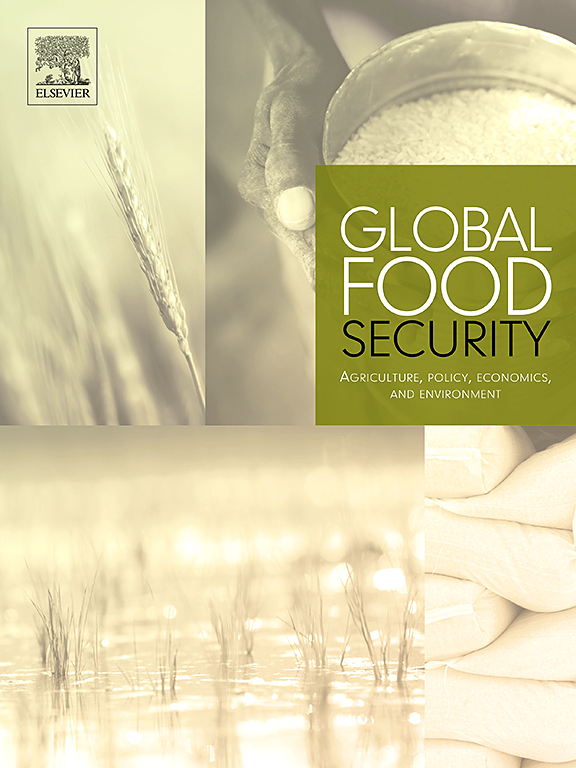Decreasing farm sizes and the viability of smallholder farmers: Implications for resilient and inclusive rural transformation
IF 9.6
1区 经济学
Q1 FOOD SCIENCE & TECHNOLOGY
Global Food Security-Agriculture Policy Economics and Environment
Pub Date : 2025-04-11
DOI:10.1016/j.gfs.2025.100854
引用次数: 0
Abstract
Smallholder farmers are key to achieving a more resilient and inclusive process of rural transformation in the developing world. This article reflects on trends in farm size and the implications for the viability of small-scale producers across the developing world within the context of resilient and inclusive rural transformation. While the farmland consolidation expected under structural transformation has occurred in high income countries, average farm sizes are decreasing across developing regions. Clearly, more is driving farm size than simply economic growth. Most smallholders struggle for viability in terms of earning a living income from farming alone. However, viability needs to be viewed through a broader perspective that considers the role of smallholder farming within diversified household livelihood and risk mitigation strategies and their social and environmental contributions, such as ecosystem services. Recognizing the multiple social and economic roles played by small farms helps explain the continued persistence and relevance of smallholders in the face of structural transformation in much of the developing world. Investment and policy and programmatic support focusing on both on-farm and off-farm interventions within a territorial approach are crucial to strengthening the role of smallholders in resilient and inclusive rural transformation.
农场规模的缩小和小农的生存能力:对弹性和包容性农村转型的影响
在发展中世界,小农是实现更具复原力和包容性的农村转型进程的关键。本文反映了在韧性和包容性农村转型的背景下,农场规模的趋势及其对整个发展中国家小生产者生存能力的影响。虽然高收入国家出现了结构转型下预期的农田整合,但整个发展中地区的平均农场规模正在减少。显然,推动农场规模的因素不仅仅是经济增长。大多数小农仅靠耕种就难以维持生计。但是,需要从更广泛的角度来看待其可行性,考虑到小农农业在多样化家庭生计和减轻风险战略中的作用及其社会和环境贡献,如生态系统服务。认识到小农场所发挥的多重社会和经济作用,有助于解释在许多发展中国家面临结构转型时,小农的持续存在和相关性。投资以及政策和方案支持,侧重于以地域为基础的农场和非农干预措施,对于加强小农在韧性和包容性农村转型中的作用至关重要。
本文章由计算机程序翻译,如有差异,请以英文原文为准。
求助全文
约1分钟内获得全文
求助全文
来源期刊

Global Food Security-Agriculture Policy Economics and Environment
FOOD SCIENCE & TECHNOLOGY-
CiteScore
20.90
自引率
3.40%
发文量
69
期刊介绍:
Global Food Security plays a vital role in addressing food security challenges from local to global levels. To secure food systems, it emphasizes multifaceted actions considering technological, biophysical, institutional, economic, social, and political factors. The goal is to foster food systems that meet nutritional needs, preserve the environment, support livelihoods, tackle climate change, and diminish inequalities. This journal serves as a platform for researchers, policymakers, and practitioners to access and engage with recent, diverse research and perspectives on achieving sustainable food security globally. It aspires to be an internationally recognized resource presenting cutting-edge insights in an accessible manner to a broad audience.
 求助内容:
求助内容: 应助结果提醒方式:
应助结果提醒方式:


